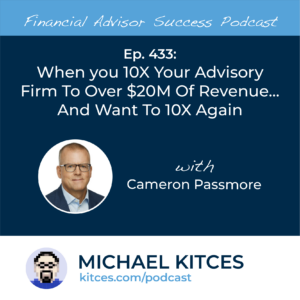An advisory firm's website often serves as the hub for attracting new clients, with various forms of content acting as 'spokes' that attract prospective clients to the firm. But for many advisors, the hardest part of creating a content marketing strategy is knowing where to start. Without a structured approach, content creation can cost the advisor valuable time without leading to meaningful leads.
In this guest post, Mikel Bruce, CEO of TinyFrog Technologies, discusses how financial advisory firms can leverage the AIDA (Awareness, Interest, Desire, Action) framework that outlines the stages of a prospect's decision-making process to create a clear, effective content marketing strategy. By aligning website content to the AIDA journey, firms can engage visitors in a way that encourages them along a sequential path toward becoming clients. This structured approach helps ensure that marketing efforts translate into measurable results rather than scattered content that fails to gain traction.
Because very few consumers wake up one day with the sudden realization that they need a financial advisor (let alone know which advisor they want to use), firms can focus their efforts on guiding prospects through the decision process. The first step of the AIDA process, Awareness, centers on helping prospects recognize the firm's existence. This can be done through various forms of content – including blogs, videos, and/or podcast episodes – that address common pain points of the firm's ideal client. Additionally, firms can extend their content's reach by repurposing materials across different platforms (e.g., turning a blog post into a video that both explains a topic and showcases the advisor's personality).
Once a prospect's attention has been captured, the next step is to build Interest by encouraging them to explore their problem in more depth. At this stage, prospects begin researching solutions and engaging with educational resources. Firms can support this engagement by offering high-value content (e.g., white papers or in-depth articles), while requesting the prospect's contact information in exchange. This allows firms to follow up with email sequences that introduce the firm, highlight key services, share relevant resources, and invite prospects to take the next step, such as scheduling a call.
As prospects learn more about how the firm can address their specific concerns, they may begin to develop a stronger Desire to engage. At this stage, building trust is essential. Firms can showcase credibility by providing client testimonials, case studies, and success stories that illustrate how they have helped others achieve similar goals.
Finally, at the Action stage, prospects are ready to decide whether to engage with the firm. A well-structured process page on the firm's website can provide clarity on next steps, reinforce the value of working with the firm, and establish clear expectations for the advisor-client relationship. Additionally, a simple, compelling Call To Action (CTA) – such as a scheduling link, contact form, or direct phone number – helps guide prospects toward taking the final step.
Ultimately, the key point is that a well-designed website, built with lead generation in mind, can be one of an advisory firm's most powerful tools for attracting and converting highly qualified prospects. The key lies in creating a thoughtful, targeted content strategy that meets prospects where they are – guiding them from initial Awareness to taking Action. And by doing so, firms can transform their website from a passive digital presence into an effective catalyst for long-term growth and success!




